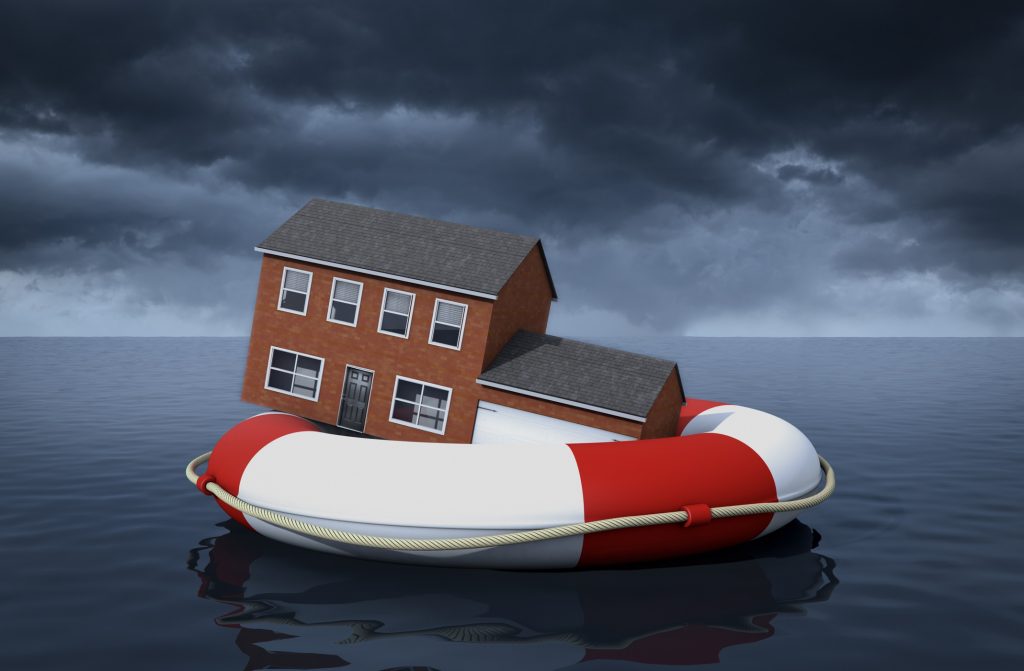
What Happens When COVID Mortgage Deferment Ends?
As families and individuals alike struggle to recover from the numerous hardships caused by COVID-19, some may wonder how to proceed when the time comes for their COVID-19 mortgage deferment to end.
Depending on the borrower, COVID-19 forbearance could apply to a home mortgage, student loans, or any other type of repayment plan.
The following information will offer valuable insight into COVID-19 forbearance, how it works and what to do if you still can’t afford to make your mortgage payments after your deferment period is technically over.
Ready to speak with an expert? Start Now
What is COVID-19 Mortgage Deferment?
Because the recent pandemic has heavily impacted public health as well as the economy, many financial institutions are granting borrowers deferment — a temporary pause in loan repayment until the borrower regains financial stability. Keep in mind that deferment is not loan forgiveness, it simply takes the pressure off of the borrower for a short time.
While there is no doubt that everyone has felt the effects of the COVID-19 pandemic in some capacity, it’s important to know that loan deferment is not a given. Borrowers are typically required to qualify for deferment, which can prove more difficult if loans are held privately. However, thanks to the March 2020 CARES Act, many homeowners are still able to qualify for deferment and even receive deferment extensions.
CARES Act
The Coronavirus Aid, Relief, and Economic Security Act — or the CARES Act — is a stimulus bill worth over $2 trillion that was passed on March 27, 2020, to help American workers, families, and businesses deal with the aftermath of the Coronavirus.
The CARES Act offers two primary protections to homeowners who have federally or GSE-backed mortgages. “GSE” refers to government-sponsored enterprises, such as Fannie Mae and Freddie Mac, two federally-supported home mortgage companies.
First and foremost, the CARES Act prevents FHA or USDA lenders from foreclosing on homeowners before March 31, 2021. Similarly, VA, Fannie Mae or Freddie Mac lenders cannot foreclose on homeowners before February 28, 2021.
Furthermore, the CARES Act grants homeowners the right to receive forbearance for up to 180 days if they have experienced financial hardship because of COVID-19. Borrowers can then contact their loan servicer to request an additional 180 days at no cost, for a total of 1 year of forbearance.
Because some institutions have a forbearance request deadline of February 28th, 2021, it’s vital that homeowners request forbearance as soon as possible.
Ready to speak with an expert? Start Now
What Happens When COVID-19 Forbearance Ends?
If you are nearing the end of your forbearance period, it’s essential to communicate with your loan provider. Don’t hesitate to describe your financial situation and tell them if you will not be able to make your mortgage payments after your forbearance is over. After all, if you aren’t open with your loan servicer, they may have no choice but to penalize you. On the other hand, if you communicate early and often, they are more likely to help you find a solution.
As previously mentioned, borrowers have the right to a 180-day extension on their forbearance. However, if you have already taken advantage of your 1-year forbearance and you still won’t be able to make your payments, there are options available to you. Your loan servicer may offer a loan modification, help you facilitate a short sale, or find your next living situation, if applicable.
How Does COVID-19 Forbearance Repayment Work?
When it’s time to resume your mortgage payments, there are several repayment options at your disposal. By communicating with your loan provider, you may be able to establish a repayment plan that slightly increases your monthly payment until your backlogged mortgages are paid.
Secondly, you may be able to obtain a deferral or partial claim if you can resume your normal payments, but cannot afford to increase your monthly amount. In this case, your missed payments will likely be added to the end of your loan or put into a second mortgage or “junior lien” that will be paid when you sell, terminate, or refinance your mortgage. You could also give your provider a lump sum if you can repay all of your missed payments at once.
Do I Have to Pay a Lump Sum?
While paying a lump sum is an option after forbearance, it is certainly not a requirement. If your provider presents a lump sum payment as your only option, inquire about alternatives. You can check out this helpful Forbearance Fact Sheet for more information.
Can I Extend My Forbearance?
Given that the CARES Act allows for a 180-day forbearance extension, homeowners whose loans are insured by the FHA, the HUB (U.S. Department of Housing and Urban Development), the VA, section 184 or 184A of the Housing and Community Development Act of 1992, the Department of Agriculture, Freddie Mac or Fannie Mae providers are permitted a total of 365 days of forbearance.
How Do You Request Extension?
It is important to remember that neither the initial forbearance request nor the forbearance extension is automatic — homeowners must request both from their loan provider.
The thought of contacting your loan provider to request a forbearance or a forbearance extension can be intimidating, particularly if you aren’t sure that you will be able to make your mortgage payments in the near future.
However, you are not alone. As of December 2020, more than 2.8 million homeowners were on forbearance plans. Loan servicers understand that this is an incredibly challenging time for many people financially, physically, and emotionally. Generally, loan providers want to avoid foreclosure as much as you do, you just have to communicate with them.
The first step is to contact your loan provider and communicate honestly about your situation. Together, you can establish a plan going forward to handle your forbearance and missed payments. Remember, without communication, your loan servicer may be forced to penalize you — contact them as soon as possible to discuss forbearance.
What if You Still Can’t Afford Your Mortgage Payments After Forbearance?
If you are nearing the end of your forbearance period, have already received an extension, and still cannot afford your mortgage payments, it may be time to consider downsizing to a more affordable living situation.
This could involve selling your home through a short sale, foreclosure, or a deed-in-lieu of foreclosure. While these are not ideal situations, your loan provider can be a helpful resource in guiding you towards your next best step if repayment is not an option for you.
Partner With Capital Bank Experts to Navigate COVID-19 Forbearance
The above information provides an in-depth look at COVID-19 forbearance, how homeowners can manage their loan repayment plans, and what to do if you can’t afford your payments after forbearance.
Regardless of your current financial situation, remember that you are not alone. Communication with your financial institution and loan provider is paramount to receiving forbearance and finding a repayment solution.
Once your forbearance ends, Capital Bank Mortgage Bankers are available to discuss possible next steps if you’re looking for financing, connect with our team today.
